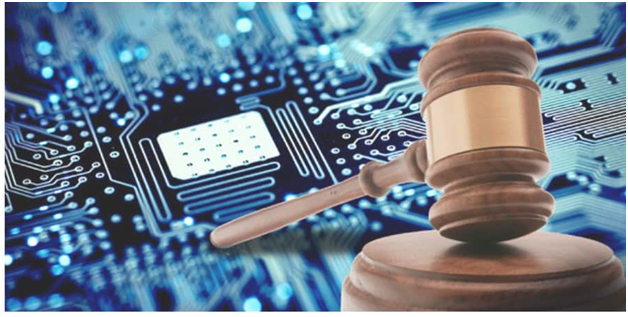
1. How is LegalTech shaping the future of the legal industry?
LegalTech: Revolutionizing the Legal Landscape with Technology
The legal industry is undergoing a significant transformation with the advent of LegalTech, which refers to the use of technology to streamline and enhance legal processes. From document management and research to client communication and case management, LegalTech solutions are revolutionizing how legal professionals work. Innovative tools and software are being developed to automate routine tasks, improve accuracy, and increase efficiency. LegalTech is paving the way for a more agile and client-focused legal sector by leveraging artificial intelligence, machine learning, and data analytics.
Related Questions:
- How is LegalTech transforming traditional legal processes and workflows?
- What are some examples of innovative LegalTech solutions that are currently being used in the legal industry?
- What are the potential benefits and challenges of adopting LegalTech in law firms?
2. What role does artificial intelligence play in the transformation of the legal sector?
Artificial Intelligence in Law: Empowering Efficiency and Insight
Artificial intelligence (AI) is revolutionizing the legal sector by automating repetitive tasks, improving legal research capabilities, and providing valuable insights. AI-powered systems can analyze vast amounts of legal data, identify patterns, and make predictions, assisting lawyers in making informed decisions. AI chatbots are transforming client interactions by offering instant support and answers to legal inquiries. However, the use of AI in law also raises ethical and legal considerations, such as accountability, bias, and the impact on human judgment.
Related Questions:
- How is artificial intelligence being used to automate routine legal tasks and document review?
- What are the ethical and legal considerations surrounding the use of AI in legal decision-making processes?
- How can AI-powered legal research platforms enhance the efficiency and accuracy of legal research?
3. How is blockchain technology being applied in the legal industry, and what benefits does it offer?
Blockchain in the Legal Industry: Enhancing Security and Transparency
Blockchain technology, known for its secure and decentralized nature, is finding applications in the legal industry. It enables the creation of tamper-proof and transparent records, enhancing the security and efficiency of legal processes. Smart contracts, powered by blockchain, automate agreement execution and ensure compliance. Blockchain-based systems enable secure and immutable storage of evidence, intellectual property, and land ownership records. However, challenges such as scalability, legal implications, and regulatory frameworks need to be addressed for wider blockchain adoption in law.
Related Questions:
- How does blockchain technology ensure the integrity and immutability of legal records and contracts?
- In what ways can blockchain streamline the process of verifying and authenticating legal documents?
- What are the potential challenges and risks associated with implementing blockchain in the legal sector?
4. What are the key advancements in automation that are revolutionizing legal processes?
Automation in Law: Streamlining Operations for Increased Efficiency
Automation technologies such as robotic process automation (RPA) and advanced software systems are transforming legal processes. Mundane and time-consuming tasks like document review, contract management, and legal research can now be automated, saving considerable time and effort. Automation improves accuracy, reduces human error, and enables legal professionals to focus on higher-value tasks. However, the successful implementation of automation requires careful planning, process optimization, and consideration of potential ethical and job-related implications.
Related Questions:
- How can automation technologies, such as robotic process automation (RPA), reduce the time and effort required for repetitive legal tasks?
- How does automation impact legal research, contract management , and case management?
- What are some examples of successful automation implementations in law firms, and what benefits have they yielded?
5. How are data privacy regulations evolving, and what impact do they have on the legal landscape?
Navigating Data Privacy Regulations: Challenges and Opportunities for Legal Professionals
Data privacy regulations, such as the General Data Protection Regulation (GDPR) and the California Consumer Privacy Act (CCPA), continuously evolve and impact the legal landscape. These regulations impose stricter rules on collecting, processing, and sharing personal data. Legal professionals need to stay updated with the latest privacy requirements and ensure compliance to avoid penalties and reputational damage. Data privacy also presents opportunities for legal experts to advise businesses on privacy policies, data protection practices, and security measures.
Related Questions:
- What are the key data privacy regulations that legal professionals need to be aware of, and how are they evolving?
- How do data protection laws affect the legal industry's collection, storage, and transfer of personal data?
- What are the implications and consequences of non-compliance with data privacy regulations for law firms?
6. What are virtual law firms, and how are they changing the traditional law firm model?
Virtual Law Firms: Redefining Legal Services in the Digital Era
Virtual law firms are transforming the traditional law firm model by leveraging technology to operate remotely and deliver legal services online. These firms leverage cloud-based platforms, video conferencing, and collaborative tools to connect with clients and provide legal advice without the constraints of physical office space. Virtual law firms offer increased flexibility, cost savings, and access to a broader client base. However, they also pose unique challenges in terms of building trust, maintaining secure communication, and managing virtual teams.
Related Questions:
- What are the advantages and limitations of virtual law firms in terms of cost, flexibility, and client reach?
- How do virtual law firms leverage technology to provide remote legal services and collaborative work environments?
- What impact do virtual law firms have on the traditional brick-and-mortar law firm model and the legal profession as a whole?
7. What are the latest developments in e-discovery technology, and how are they improving legal investigations?
E-Discovery Advancements: Transforming Legal Investigations with Technology
E-discovery technology is revolutionizing legal investigations by streamlining electronic evidence identification, preservation, and review. Advanced search algorithms, predictive coding, and machine learning enable faster and more accurate analysis of massive data sets. E-discovery tools assist legal professionals in identifying relevant information, reducing costs, and ensuring compliance with discovery obligations. However, the complexities of managing and analyzing large volumes of data, privacy concerns, and the need for skilled e-discovery experts present ongoing challenges.
Related Questions:
- What is e-discovery, and how does technology assist in identifying, preserving, and reviewing electronic evidence?
- What are some emerging e-discovery technologies, such as predictive coding and advanced search algorithms, and how do they enhance efficiency and accuracy?
- How does e-discovery technology mitigate risks, reduce costs, and ensure compliance in legal investigations?
8. How do smart contracts work, and what potential do they hold for streamlining legal agreements?
Smart Contracts: Revolutionizing Legal Agreements with Automation and Security
Smart contracts, powered by blockchain technology, are self-executing agreements that automatically enforce contract terms. By eliminating the need for intermediaries and providing immutable records of transactions, smart contracts offer enhanced security and transparency. They have the potential to streamline various legal agreements, such as supply chain contracts, real estate transactions, and intellectual property rights. However, challenges related to enforceability, legal interpretation, and integration with existing
Conclusion:
Emerging legal trends and technological advancements undeniably shape the law's future. LegalTech, with its innovative solutions, is revolutionizing traditional legal processes and workflows, increasing efficiency, and improving client services. Artificial intelligence is playing a pivotal role in automating tasks, enhancing research capabilities, and providing valuable insights to legal professionals. Blockchain technology is being applied to enhance security, transparency, and efficiency in the legal industry, while automation advancements are streamlining operations and reducing manual workloads.
Data privacy regulations continue to evolve, imposing stricter requirements on handling personal data, and legal professionals must stay updated and ensure compliance. Virtual law firms are redefining the traditional law firm model by leveraging technology to deliver services remotely, offering flexibility, cost savings, and wider client reach. E-discovery technology is transforming legal investigations by improving electronic evidence identification, preservation, and review.
Furthermore, smart contracts, powered by blockchain technology, hold the potential to streamline legal agreements by automating execution and ensuring compliance. However, alongside these advancements, there are challenges to address, such as ethical considerations, data privacy concerns, regulatory frameworks, and the need for skilled professionals well-versed in these emerging trends.
As the legal landscape continues to evolve, legal professionals must adapt and embrace these emerging trends and technologies to stay competitive and provide efficient, client-centric services. By leveraging the opportunities presented by LegalTech, artificial intelligence, blockchain, automation, and other advancements, the legal industry can navigate the future with agility, innovation, and a commitment to delivering the highest standards of legal services.
In conclusion, the future of law is an exciting intersection of technology and legal expertise, where the adoption of emerging trends and advancements promises to reshape the legal profession, improve efficiency, and enhance the delivery of legal services to meet the evolving needs of clients in a rapidly changing world.





